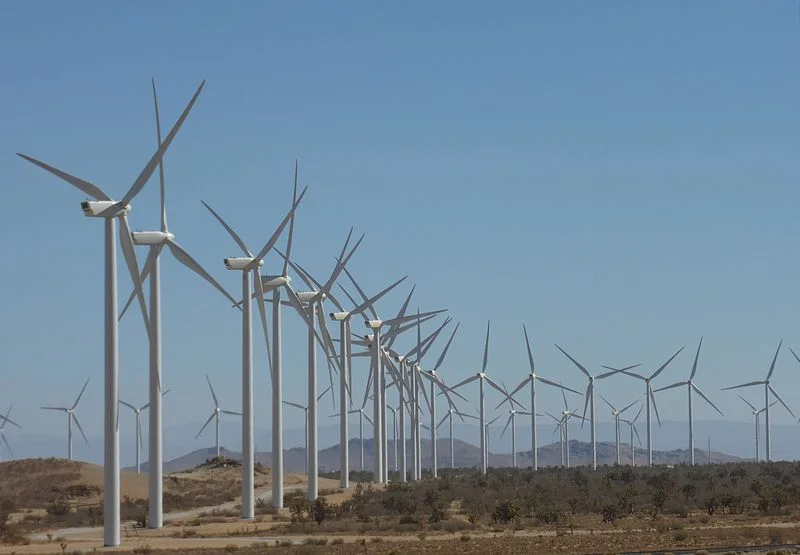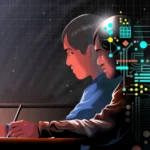Explore the impact of vague political decisions on our environment and society. This article examines the consequences of government policies, the ethical implications of technological advancements like electric cars and wind turbines, and the ongoing debates surrounding wildlife management. Join the discussion on whether profit is prioritized over human lives and the urgent need for effective climate action. your text corrected for clarity and coherence, with keywords highlighted in subtitles: Picture: Add Up Vague Decisions by World Leaders Do you know how many vague decisions are made almost daily by the rulers of our world? These administrators often have no…...
Sign in with Google to continue reading
💬 Meet Our Members

Antonius Bakker
Antonius "Ton" Bakker, born May 23, 1961, in the Netherlands, is a…

Dr. B.H.S Thimmappa
B.H.S. Thimmappa is a seasoned chemistry professional with extensive experience in developing…

Carl Scharwath
Carl Scharwath, has appeared globally with 210+ publications selecting his writing or…

Sindhu Gopalkrishnan
I love writing as I get to create something beautiful and touch…

Julia Orozco
Poet who love nature and writing poetry.
Tamizh Ponni VP
Tamizh Ponni VP is an ambivert who loves to express her skills…
Support independent journalism. Your membership keeps us going.
Explore the impact of vague political decisions on our environment and society. This article examines the consequences of government policies, the ethical implications of technological advancements like electric cars and wind turbines, and the ongoing debates surrounding wildlife management. Join the discussion on whether profit is prioritized over human lives and the urgent need for effective climate action. your text corrected for clarity and coherence, with keywords highlighted in subtitles:

Vague Decisions by World Leaders
Do you know how many vague decisions are made almost daily by the rulers of our world? These administrators often have no clear understanding of how their choices will develop in the future or the extent of the damage they may cause to us and our environment. Recent events and revelations have highlighted how many theories about our past remain unverifiable due to the organic changes our world has undergone over time. As history unfolds, it becomes increasingly evident that the decisions made today can have long-lasting repercussions, often beyond our immediate comprehension.
The reality is that political leaders are frequently caught in a web of uncertainty. They face complex challenges ranging from economic stability to environmental sustainability. In their pursuit of solutions, they may resort to hasty decisions that lack thorough research or long-term consideration. The consequences can be dire, affecting not only current populations but also future generations.
Our Origins and Afterlife
Do we humans know with certainty where we came from? The question of where we go after we die remains an open and profound mystery for many individuals, persisting until their final moments. Some people believe in a supreme being, with various names across cultures, such as God, Jesus, Allah, Krishna, or Mohammed. Each belief system offers its own narrative about our existence and purpose, shaping how individuals view life and death.
In my view, everyone has the right to choose their faith, as long as they do not impose it on others. The diversity of belief systems enriches our world, but unfortunately, not everyone can handle this perspective. The inability to coexist peacefully often leads to conflicts that seem unnecessary. Religious disagreements have historically fueled wars, persecution, and societal division, highlighting the need for greater tolerance and understanding among individuals of varying beliefs.

Control Over Political Decisions
Should there be better oversight of politicians’ policies? This question is crucial in today’s rapidly changing political landscape. Can politicians effectively monitor the rules and measures they introduce? Is it even possible to implement precautionary measures with the diligence required? I often see decisions made hastily, applied over a longer period to assess their results. For example, the import of wind turbines in many countries initially seemed like a beneficial move toward sustainable energy. However, evidence has emerged that suggests these turbines can have negative effects on local ecosystems and communities.
Similarly, the electric car was celebrated as a breakthrough in environmentally friendly technology. Yet, this innovation poses significant environmental challenges, particularly concerning battery production and disposal. The very materials that make electric cars appealing can contribute to pollution and resource depletion, raising questions about the true cost of these “green” alternatives.
Picture: power Technology
Environmental Damage Assessment
Is the environmental damage as severe as we imagine? Just like wind turbines, electric cars come with their own set of challenges, surrounded by subsidy incentives that often overlook long-term impacts. The production of electric car batteries generates considerable waste, much of which is nearly impossible to recycle. In the long term, these technologies may cause more harm than good to our planet and our living environments.
Many scholars believe that past decisions have contributed to ongoing environmental crises such as acid rain, deforestation, and the depletion of the ozone layer. These issues, largely self-inflicted by human activity, raise alarms about humanity’s potential downfall if we continue down this path. We need to re-evaluate our priorities and make informed decisions that consider both immediate benefits and long-term consequences.
Political Missteps and Wildlife Management
Is the wolf in the wild the next political blunder? In my opinion, the terms for political parties are too short for them to adequately address the consequences of their decisions. Political leaders often find themselves racing against time, trying to enact policies without fully understanding the repercussions.
Take, for example, the rising wolf populations in various regions of Europe. Initially, the reintroduction of wolves was celebrated as a necessary step for biodiversity. However, as these populations grew, they began causing significant problems for farmers and even posed risks to human safety. Incidents involving livestock attacks have escalated, leading to public outcry and demands for action. Yet, politicians often seem slow to respond, bound by outdated legislation or reluctant to challenge the status quo.
Admitting Mistakes in Governance
Do politicians, like the esteemed Stephen Hawking, dare to admit when they are wrong before their decisions lead to serious consequences? The sound of wind turbines, the waste produced by nuclear reactors, the impact of electric car batteries, and the introduction of wolves into human-inhabited areas are just a few examples of controversial decisions that may not have been well thought out.
It seems that commerce and the wealthy often prioritize profit over human welfare, creating a troubling dynamic in which human lives become collateral damage in the name of progress. This reality forces us to question whether human lives are sacrificed for luxury and convenience.
The Cost of Development
Are these catastrophes occurring because we believe that progress necessitates sacrificing certain lives? The unleashed wolf serves as a metaphor for changing perspectives. Is making money prioritized over human lives? Some argue, as Al Gore does regarding climate change, that we need to control the world's population. If climate action is urgent, why aren’t measures enforced globally and dealt with proportionately?
As we face the escalating consequences of climate change and environmental degradation, it becomes increasingly vital to address these pressing issues. The question remains: Do we possess the collective power to influence the behavior of our planet? Close your eyes and think about why climate action is implemented at different rates across countries. If the situation is as dire as we’re told, why aren’t all nations held to the same standards?
In conclusion, the interplay of political decisions, environmental responsibility, and societal values shapes the world we live in. I’d love to hear your thoughts on these pressing issues.











